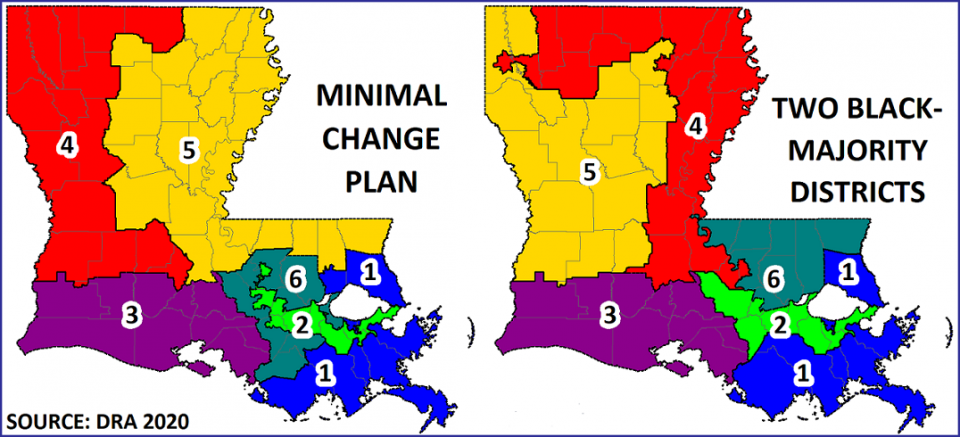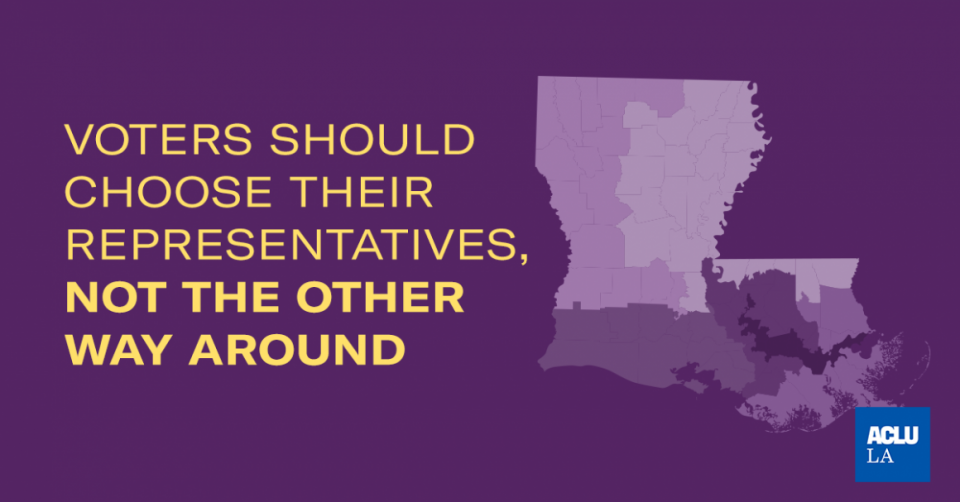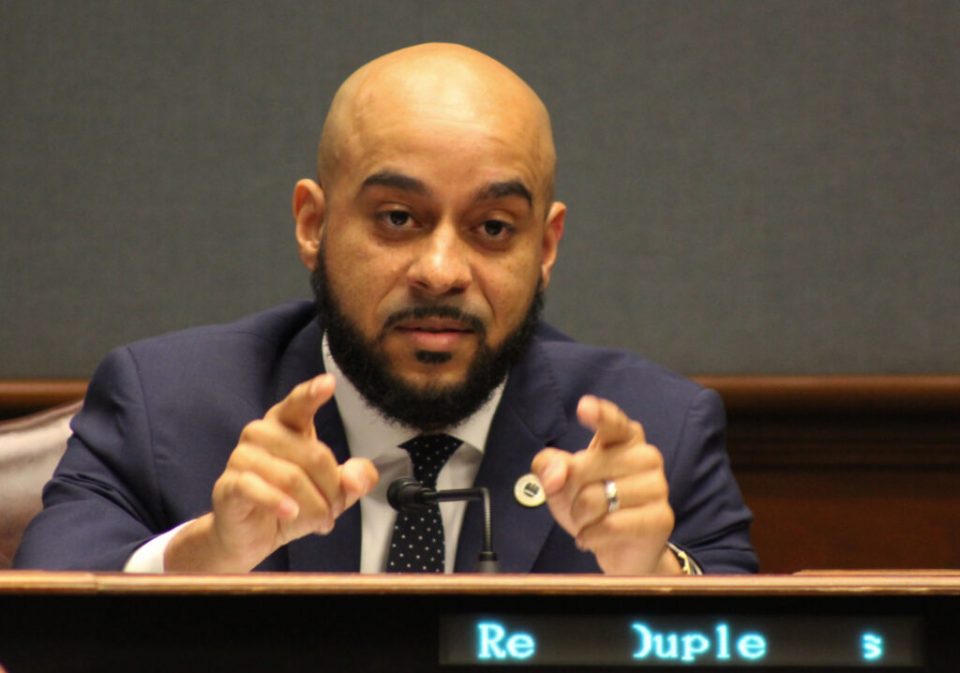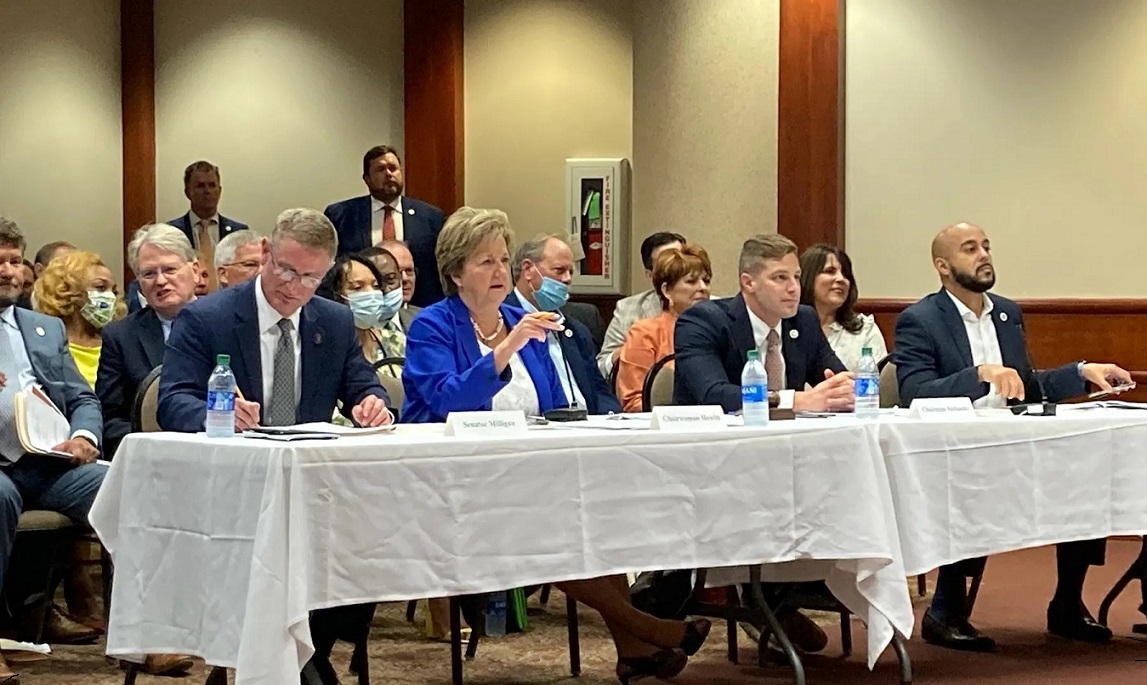JUSTICE DENIED IN BLACK HISTORY MONTH!
by C.C. Campbell-Rock
The words of Reverend Dr. Martin Luther King, Jr, ring true. He said, ‘Justice Delayed is Justice Denied.” Other civil rights activists echo this through the ages. Still the battle for justice for Blacks and other people of color continues during Black History Month 2022. Frederick Douglass’ sage wisdom: “Power concedes nothing without a demand. It never did, and it never will,” reminds us that we have to “Fight the Power,” as Public Enemy sings.
The struggle to maintain democracy and the vote is the civil rights challenge of the 21st century for all Americans. This is especially true for Blacks and other people of color across America.
In Louisiana, specifically, if the past is prologue, Black Louisianans can expect justice to be denied.
Every ten years, a Census is conducted to count the population of the U.S. The data collected determine the number of seats each state has in the U.S. House of Representatives. This process is called apportionment. Apportionment is also used to distribute billions in federal funds to local communities. District lines are also drawn (redistricting) for elections to the state senate, state house, BESE (Board of Elementary and Secondary Education), PSC (Public Service Commission), and the Louisiana Supreme Court.
When the state’s 2022 Extraordinary Session ends on February 20, the redistricting maps will probably continue to be racially discriminatory. Committees in the state senate and state house of representatives are debating redistricting and reapportionment bills.
Despite the best efforts of Black state lawmakers, Blacks and other people of color must endure taxation without representation.
“In a 6-3 vote, the LA Senate & Governmental Affairs Committee just approved state Senate & Congressional maps that will likely violate the Voting Rights Act. We strongly urge the legislature to adopt a Senate map that won’t undermine the political Power of Black voters,” the ACLU of Louisiana tweeted.
“Ensuring unbiased redistricting shouldn’t be about partisan politics. It should be about representation for the people and communities our leaders are supposed to serve,” the ACLU of Louisiana said in a statement. “Voters should choose their representatives — not the other way around — and every vote should count the same.”

The ACLU, the NAACP, NAACP-LDF, Power Coalition, and Fair Districts Louisiana all submitted maps. The ACLU proposed 27 additional majority-minority districts for the state House of Representatives, three additional state senate districts, and the NAACP-LDF’s plan for the Louisiana Supreme Court would add two more seats and another majority-minority district for Congress.
Indeed, a coalition of civil rights organizations wrote a letter to the Louisiana Legislature’s Senate and House Committees responsible for redistricting in October 2021. They stressed the need for fair and equitable maps.
The NAACP Legal Defense and Educational Fund, Inc., Louisiana State Conference of the NAACP, Power Coalition for Equity and Justice, American Civil Liberties Union of Louisiana, the ACLU Voting Rights Project, Campaign Legal Center, Southern Poverty Law 2 Center Action Fund, Voters Organized to Educate, Voice of the Experienced, Louisiana Progress, Fair Districts Louisiana, E Pluribus Unum, Black Voters Matter Fund, Louisiana Budget Project, League of Women Voters of Louisiana, Urban League of Louisiana, and Crescent City Media Group sent a letter to the Louisiana House and Senate Governmental Affairs Committees to highlight their obligation to comply with Section 2 of the Voting Rights Act (“Section 2”) during this reapportionment and redistricting cycle when preparing a new district map to elect Louisiana’s six members of the United States House of Representatives.
The letter urged the state legislature to consider its obligations under the Voting Rights Act and adopt a congressional map with two majority-minority districts to ensure Black voters’ right to an equal opportunity to elect candidates of their choice. The groups also submitted seven maps with the letter that included two majority-minority districts.

“Black people have been vastly underrepresented in Louisiana public offices. Louisiana has never had a Black U.S. Senator and has not had a Black governor since Reconstruction. We note that Louisianans rarely elect Black candidates to Congress. The state has had only four Black Congresspeople since Reconstruction. And Black majority districts elected all of them.
“By contrast, since the Voting Rights Act was adopted in 1965, Louisiana has sent 45 white representatives to Congress. As noted above, none of the majority white districts in Louisiana has ever elected a Black representative. Louisiana’s appointed its’ first Black chief Justice of the state Supreme Court in 1994. And only after a consent decree began in a case challenging the use of at-large judicial districts. As part of the consent decree, the court created a majority-minority judicial district that has continued to elect the only Black member of the State Supreme Court.”
Indeed, in Louisiana, years of gerrymandered, partisan, and racially discriminatory redistricting have given whites a large majority in the state senate, state house of representatives, the BESE (Board of Elementary and Secondary Education), the Public Service Commission, the Louisiana Supreme Court and in the U.S. Congress. Whites comprise 58.4 percent of the state’s population, non-whites are 42.6 percent.

Yet Whites account for 87.5 percent of Louisiana’s U.S. Congressional Delegation, 74.3 percent of state senate seats, 74.2 percent of statehouse seats, 81 percent of the BESE (Board of Elementary and Secondary Education), and 85.7 percent of the Louisiana Supreme Court.
Still, the majority-white Republican Senate Committee rejected increasing the majority-Black districts in the state Senate from 11 to 13 in 2024.
“I can speak from a Senate standpoint,” State Senator Jimmy Harris told Think504. “We wanted to add two additional minority state senate districts, but the bill didn’t get out of committee,” Harris confirms Black lawmakers also wanted to add additional minority seats for Congress, BESE, the state House, and the Louisiana Supreme Court.
“There is not a will to add additional minority seats in the state senate or BESE,” he adds. The nine-member LA Senate & Governmental Affairs Committee on which Harris serves comprises three black democrats and six white Republicans. Harris, Greg Tarver, and Ed Price voted for the additional districts, but the white Republicans voted against them.
“We make up a third of the population but that is not reflected in the representation of the state legislature. It’s been our thing to try to make the state senate reflective of the population. My hope is the record being made will show that the opportunity was there during this legislative session to add seats. There will be lawsuits filed,” Harris affirms.
The lawmaker hopes the federal courts will recognize discriminatory maps. “We don’t want to lose any representation. As a black man, I will do all in my power to protect the black seats.”
Nonetheless, the civil rights organizations’ requests fell on deaf ears. Last week, the Associated Press reported the Louisiana House of Representatives rejected bills creating a new minority Congressional district by a vote of 70-33.
Also, last week, the Senate approved the existing Board of Elementary and Secondary Education map with two majority-minority seats out of eight, without adding the new district civil rights leaders wanted, according to the Louisiana Illuminator.
At least 42 percent of Louisiana public school students are black, and 80 percent of New Orleans public school students are black.

“The only hope we have is for Governor John Bel Edwards to veto the maps,” State Representative Royce Duplessis told Think504. “It takes 70 votes to override the governor’s veto. If the governor does veto the maps, the Republicans might elect to go to court.”
Duplessis says his Republican colleagues’ unwillingness to draw fair maps is beyond sad. “They don’t care about the law. I’m going to keep fighting. It’s a long battle. We didn’t get racist yesterday.”
The hope was for New Orleans, East Baton Rouge, and Shreveport to get new minority-majority Congressional districts relative to the increases in their populations.
Duplessis predicts that litigation will follow when the redistricting session ends February 20..
Louisiana legislators might have a better chance at appealing to the Biden Department of Justice than expecting justice from the U.S. Supreme Court.
The U.S. Supreme Court’s Republican-majority is aiding and abetting fellow Republicans’ schemes for making it harder for black and brown people to vote. The U.S. Supreme Court Republican majority eliminated the Voting Rights Act preclearance protections in 2013. In 2019, the court ruled partisan gerrymandering was a ‘political question. And this month, the Supreme Court majority put a hold on a lower federal court’s order for Alabama to redraw electoral maps because the maps discriminate against blacks.
Alabama secured a 5-4 ruling from the U.S. Supreme Court’s Republican majority to reinstate the disputed map for this year’s election. The court claims it will hear the plaintiffs’ case after the election.
The high court’s actions regarding voting rights are not surprising. What is shocking is the U.S. Supreme Court is elevating states’ rights over the Constitution’s Supremacy Clause. The Supremacy clause gives the court supreme power in dispensing justice and overriding states’ rights.
The Supreme Court’s action is appeasement of Republicans’ extreme white nationalist plan. The U.S. Senate’s refused to pass the John R. Lewis Voting Rights Advancement Act. And state laws by Republican extremists have intensified the struggle for those seeking justice and courts that adhere to the rule of law.
Undaunted by the struggle before them, most of Louisiana’s Black state legislators and local and national civil rights organizations understand that the battle will never end.
Unfortunately, some blacks work against other blacks who are trying to improve the quality of life of their people. U.S. Supreme Court Associate Justice Clarence Thomas is one. Thomas heard Alabama redistricting case. He brought it to the shadow docket. Thomas, a black Republican, also advocated for the total abolishing of the Voting Rights Act in 2013.
Black people are not monolithic. But voting is a universal right. How any Black man votes to limit black people’s

